Stranger's gift of organ donation; 'Here’s helping a friend'

Stranger's gift of organ donation; 'Here?s helping a friend'
Short on time and against the odds, one selfless act changed everything.
MILWAUKEE - Inside the home of Ira Hadnot are reminders of the time she has, and how quickly it runs out.
"I just automatically get up 1 o’clock," Ira said, describing her early-morning routine. "Go get a shower it’s 2 o’clock. Come out put on my clothes it’s 3 o’clock."
Ira's life is dictated by routine.
"Lot of medications, lot of doctor appointments," Ira said.
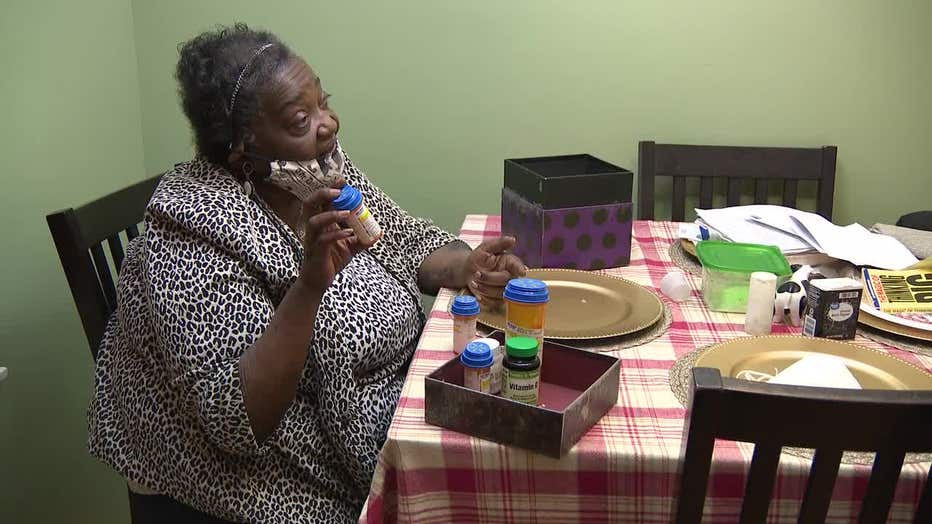
Ira Hadnot
Because that routine, for now, keeps her alive.
"I’ve memorized the colors," she said of the many pill bottles on the kitchen table. "I can’t pronounce the names."
If Ira’s days are rigid and structured, Gina Micheli’s are anything but.
"Locks break, we take care of that," Gina said, running through her every-changing to-do list. "Light bulbs, we’re always changing light bulbs."
SIGN UP TODAY: Get daily headlines, breaking news emails from FOX6 News
Gina is the facilities manager for the Wisconsin Humane Society.
"One of my upcoming projects is to put a new epoxy floor in here," Gina said on a tour of the building.
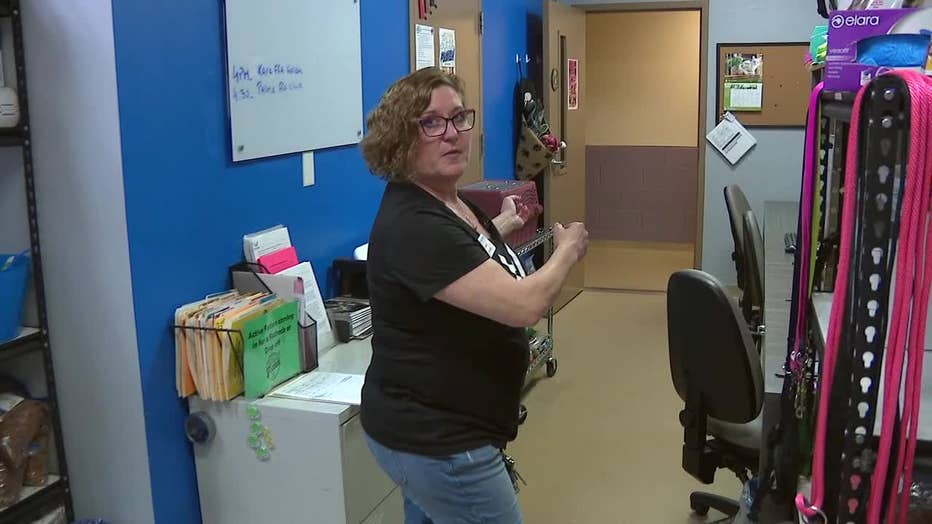
Gina Micheli
Every day is different.
"We do whatever we can do to make everyone else’s jobs easier," said Gina.
Two strangers leading opposite lives.
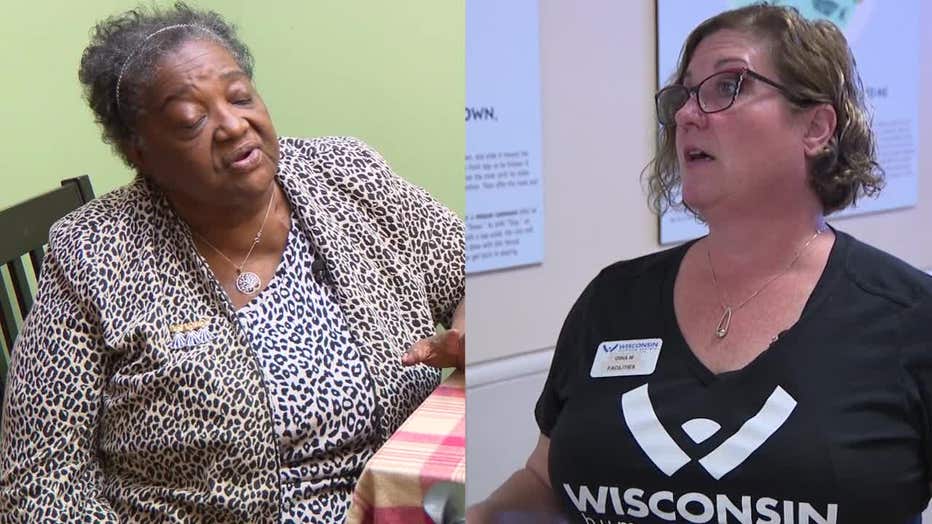
Ira’s routine centers around regular dialysis treatments. She was diagnosed in 2014 with end-stage renal disease. The machines do what her kidneys cannot – filter toxins out of her body.
"You feel tired," Ira said. "Some people may feel very dizzy."
Ira's dialysis sessions last three-and-a-half hours, three days a week, for almost seven years.
"It’s an extension of life, not a cure," Ira said. "And they tell you that all the time, because anything can go wrong."
On Sept. 24, 2021, everything did.
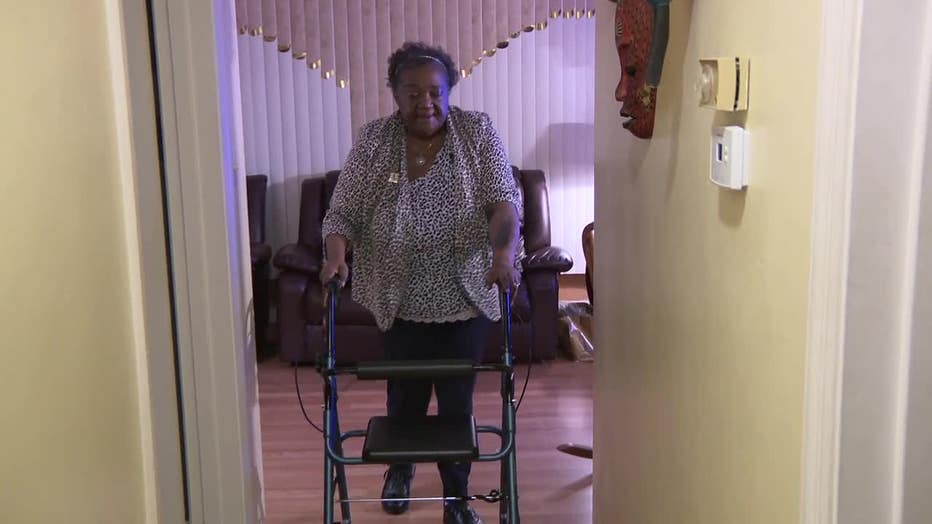
Ira Hadnot
During another normal treatment, a technician missed Ira’s vein and punctured her muscle in three different places.
"My arm hemorrhaged from here," Ira said, motioning to a mark just below her elbow. "All the way down to my fingertips."
Ira was in a coma for the better part of four weeks. She needed a kidney transplant. She wanted a living donor, not a deceased organ.
"Both get the job done, both will drive you from A to B," Dr. Ajay Sahajpal, Advocate Aurora’s Director of Abdominal Transplant, explained. "But one is probably going to last longer at five years or ten years than the other."
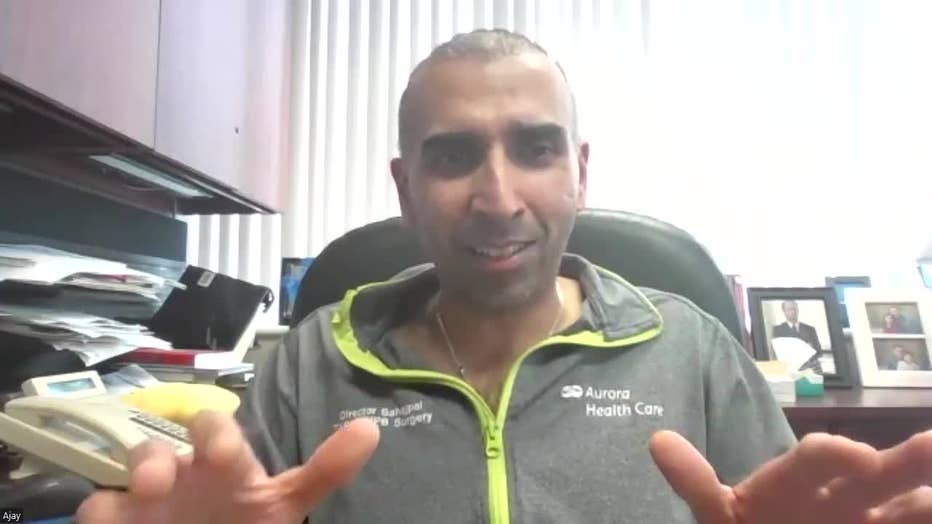
Dr. Ajay Sahajpal
But finding a living donor – that's complicated, especially if you’re Black.
"She wanted to call the system out for the fact that it was hard for her to make that happen," Dr. Sahajpal said.
According to a 2020 report in the American Journal of Transplantation, Black (32.2%) and White (35.3%) patients make up a similar percentage on the transplant waitlist. But white patients get 64.3% of the kidneys from living donors. Black patients receive 11.7%.
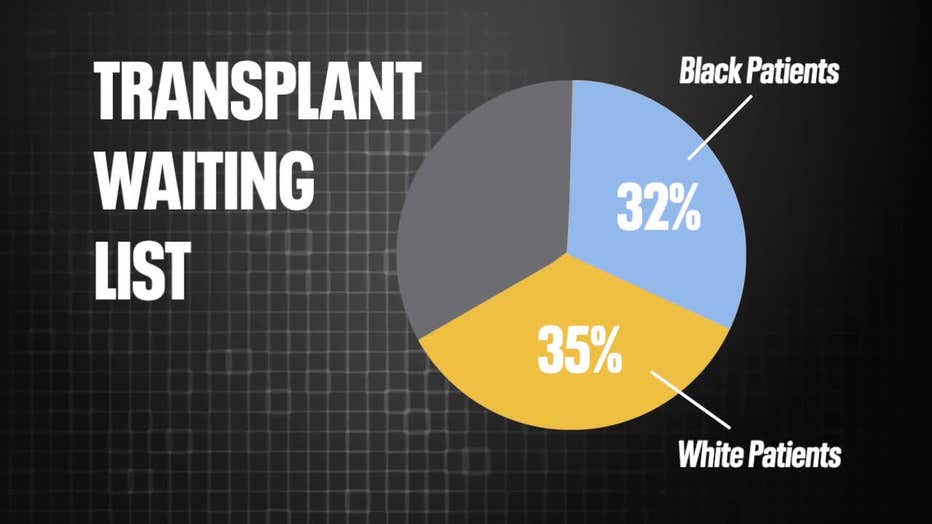
"There’s a whole bunch of issues at every level where the deck is a little bit stacked one way vs the other," said Dr. Sahajpal. "Unintentionally, but built through the process."
It starts with general health. The National Kidney Foundation says Black Americans are three times more likely to have kidney failure than their white counterparts.
"They have a higher instance of the drivers of dialysis and transplant," Dr. Sahajpal explained. "Which would be high blood pressure, diabetes."
That limits the pool of living donors.
"If your brother or sister also has diabetes or high blood pressure," the doctor added. "They would get screened off as a potential donor."
Ira’s brother, Kelvin Hadnot, wanted to donate. He could not.
"We just got a history of diabetes that goes back to my great-grandparents," Kelvin explained.
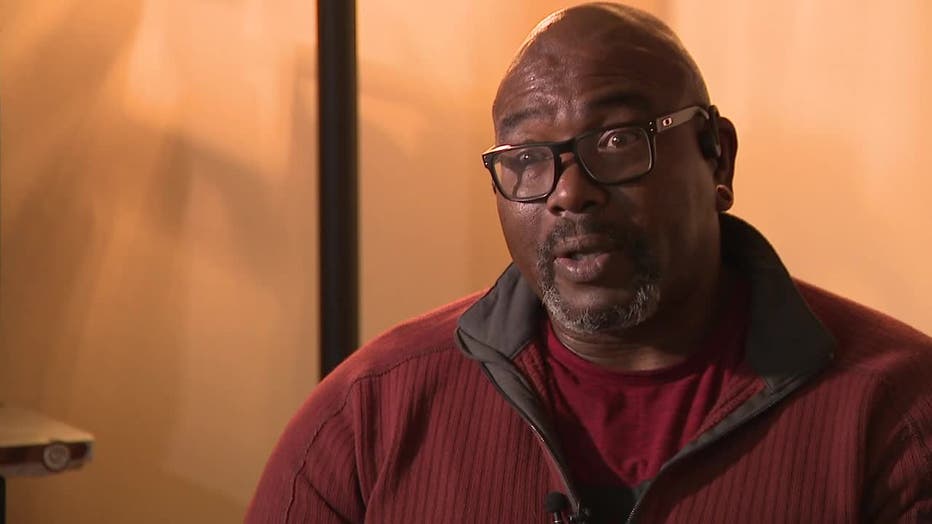
Kelvin Hadnot
But the Hadnots had – unknowingly – something most families do not, Kelvin’s boss at the time, Gina.
"I asked him what her blood type was, and he said, ‘Oh she already had transfusions. I think she’s good to go,’" Gina remembered. "And I said, ‘No I mean I’ll donate a kidney.’ And he’s like, ‘What?’ "
"‘I’d like to be the donor for Ira,’" Kelvin recalled. "And I’m like, Okay… What do you say to that?"
"I mean he didn’t ask her, we didn’t put up a billboard, we didn’t go on TV," Ira exclaimed. "I mean, she just stepped forward and volunteered, and it was a match!"
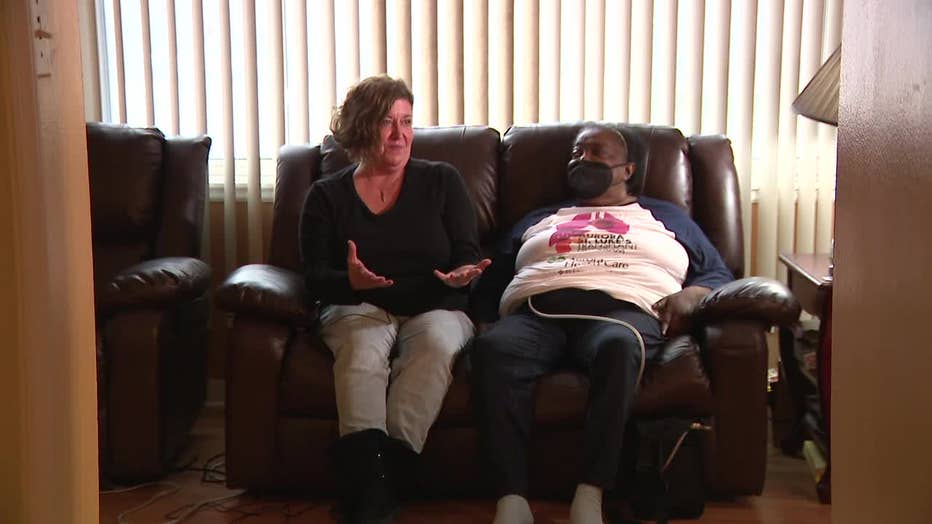
For Gina, it wasn’t as spur-of-the-moment as this all sounds.
"I’ve been wanting to do this for 18 years," Gina said. "Here’s the opportunity. Here’s helping a friend."
Turn back the clock, and it all starts with a rerun of Law and Order. The episode was about someone illegally harvesting organs to jump the transplant line.
"I was crying like, ‘Oh my god. That’s awful.’" Gina remembered. "‘We all need to donate our kidneys.’"
Not most people’s response to a crime drama, but still.
"To save a life, it’s a small ask," Gina said. "Even though it sounds like a big one."
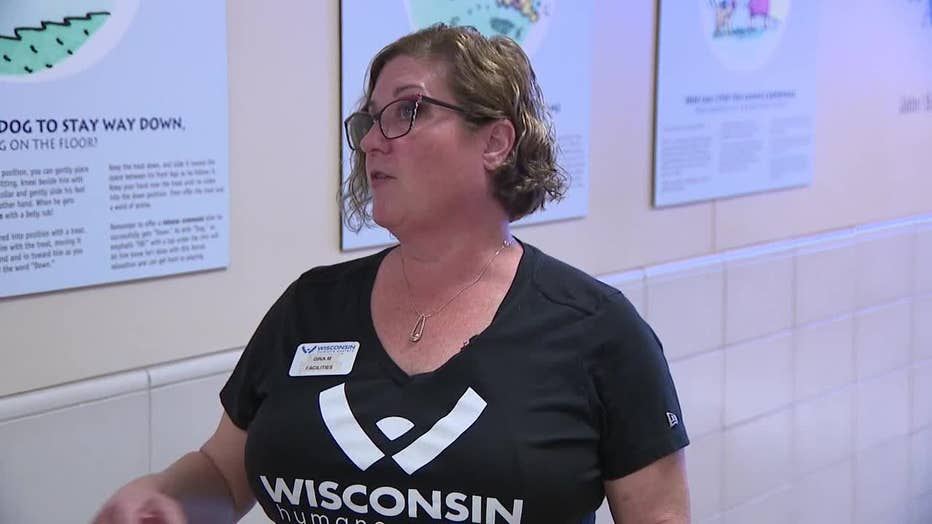
Gina Micheli
"There’s really no words for that," Kelvin said, fighting back tears. "Blessings are gifts. And that’s what that was."
Gina and Ira met in person just one time before the donation.
"I love you Kelvin, but I love your sister a little more!" Gina said of that first meeting.
On Oct. 6, Dr. Sahajpal performed their successful surgery.
"Probably one of the few times I can remember," Dr. Sahajpal said. "Where an African American, whose been waiting for so long, was able to have a complete stranger come forward."
A month later, back at Ira’s house, it’s their first meeting since the operation.
"As soon as that kidney went in, no more dialysis," Ira stated. "The kidney is filtering all those toxins out of my bloodstream."
"I would just tell everybody I've got all this extra room in my body for cheeseburgers," said Gina, who was out of the hospital within 24 hours of the operation.
There’s room for lunch, too. This new extended family sitting around the table, eating lasagna.
"Oh you're going to say I'm really part Italian!" Ira said, sharing a laugh with Gina. "A fringe benefit."
"It makes it even a more powerful gift when you don’t even really know who that individual is," Kelvin said of Gina. "I just want to give."
Two women, two lives now connected forever. Because Gina gave Ira the gift of time.
"I'll be forever grateful that I get to carry on with my life and do a lot of things that I want to do," Ira said.
"It’s our personal miracle," said Kelvin.
FREE DOWNLOAD: Get breaking news alerts in the FOX6 News app for iOS or Android
At that lunch, Ira gave Gina a plaque specially made for her "Compassionate Super Kidney Donor." Both women hope their story will lead more people to consider living organ donations.
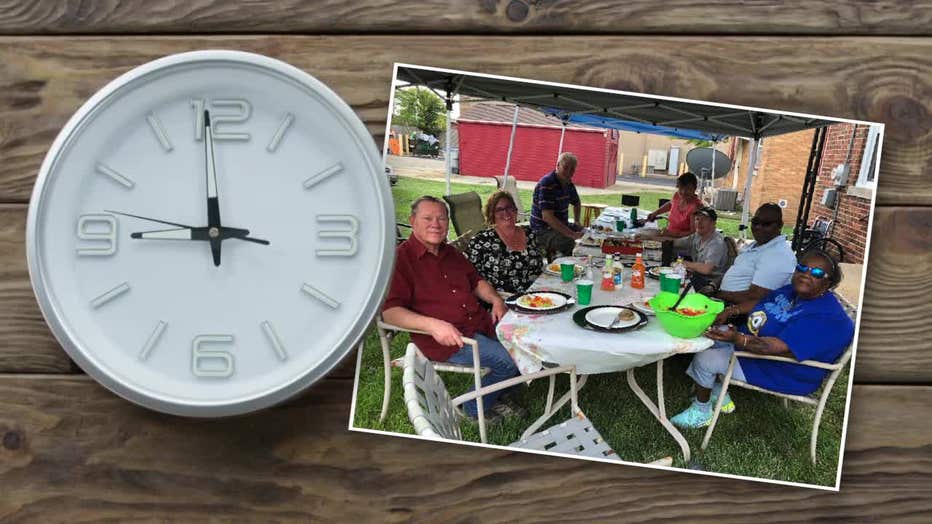
With a new lease on life, Ira hopes to return to her roots. A longtime newspaper reporter in Milwaukee and Dallas, she wants to teach young children in Milwaukee the basics of journalism and how to investigate their world.
At Aurora Health, there’s a new focus on treatment earlier in life. By tackling the early stages of high blood pressure and diabetes, the hope is fewer patients will get as far as kidney failure, dialysis and the need for a transplant. Learn much more about the organ transplant process.
Anyone with questions about being a donor can contact Jeffrey Klister, Aurora St. Luke's living donor coordinator, at 414-646-0584.

